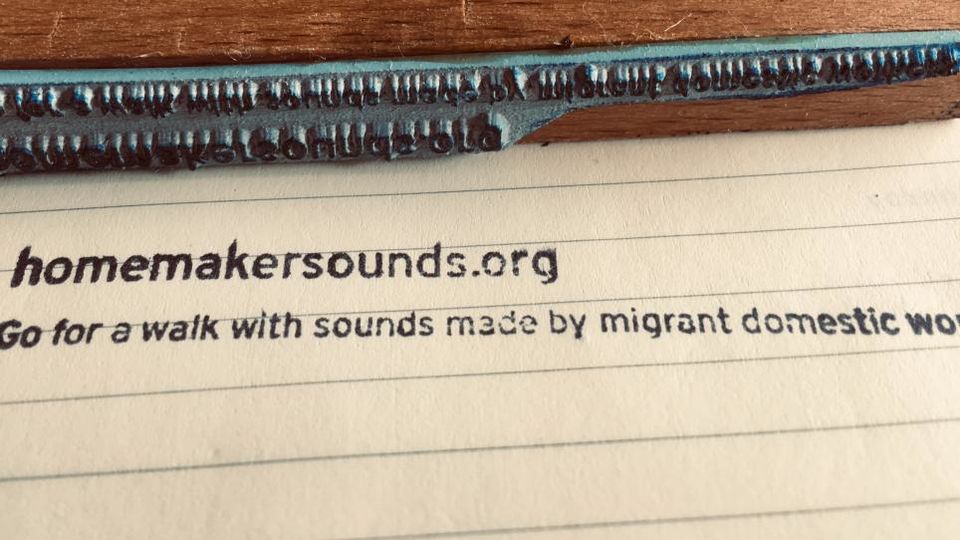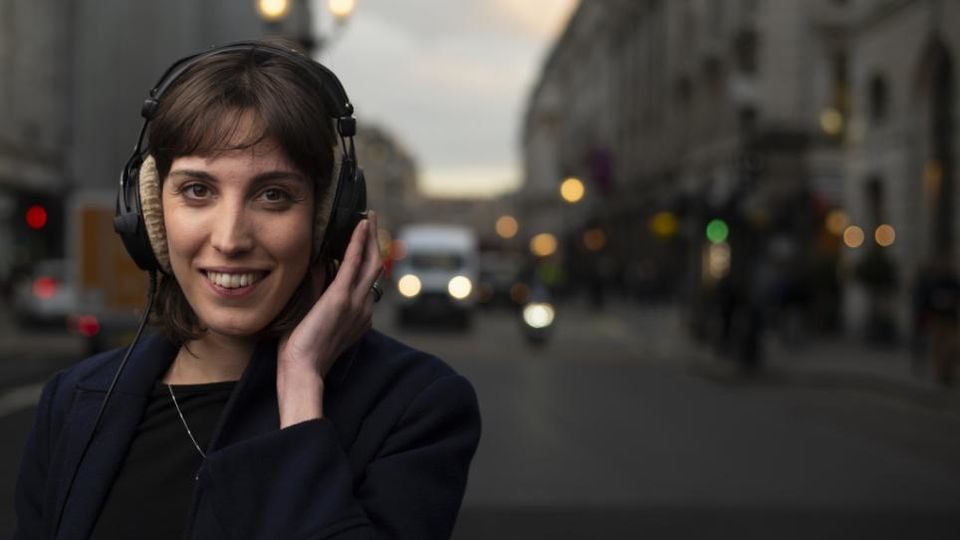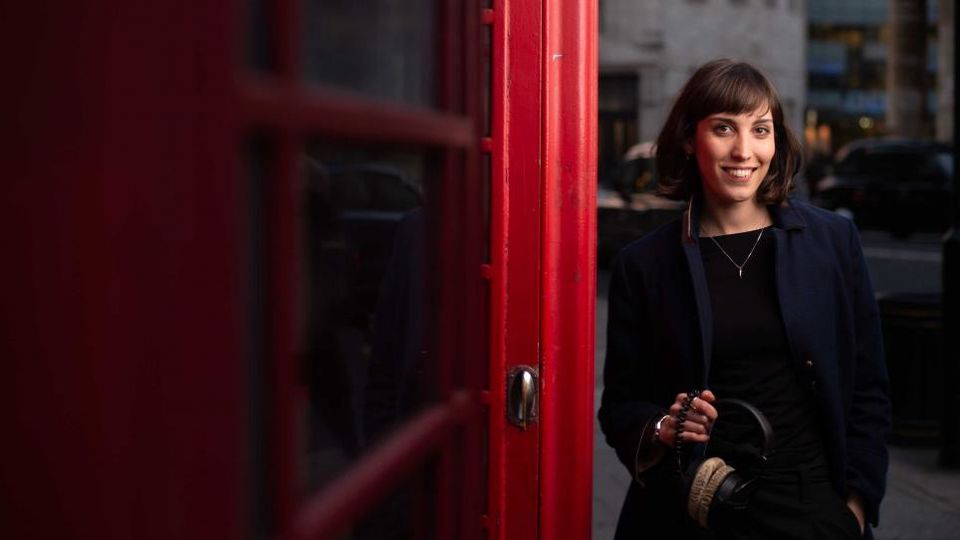Interview with Dr Ella Parry-Davies

Dr Ella Parry-Davies is a British Academy Postdoctoral Fellow at Central and a BBC/ AHRC New Generation Thinker. She holds a PhD jointly funded by King’s College London and the National University of Singapore, and researches theatre and performance in contexts of transnational migration.
Through her postdoctoral project ‘Home-Makers’, Ella is developing a series of creative soundwalks in collaboration with Filipina domestic and care workers living in the UK and Lebanon. Contesting the undervaluing of care work, she argues that the soundwalks demonstrate migrant workers’ expertise in creating a sense of home overseas through urban practices that can be understood as performative: live, embodied and collaborative.
To celebrate the launch of the soundwalks at homemakersounds.org, we sat down with Ella to discuss her work.
Q. Tell us more about your research.
Through my postdoctoral research at Central I am facilitating homemakersounds.org, a collection of soundwalks recorded and co-edited with migrant domestic workers in the UK and Lebanon, most of whom are from the Philippines. These are countries with relatively similar “tied visa” or sponsorship systems in place, that mean migrant domestic workers can’t change employer without compromising their immigration status, which leaves them unable to effectively negotiate their rights. My research is designed to share migrant domestic workers’ experiences and perspectives in a collaborative way – one that tried to maximise how much agency they have in what story gets told. So I would invite a collaborator to take me to a place that has a certain significance for her: for example one decided to escape from abusive employers in Holland Park; Sanayeh Garden in Beirut held memories of a community event enjoyed by domestic workers with undocumented children. And we would go for a walk, and then co-edit a recording of our conversation – so the collaborator would learn an audio editing software and receive appropriate remuneration for her time and creative labour. Then the soundwalk gets uploaded to homemakersounds.org and you – any member of the public – can download it, and revisit that same place while listening through headphones.
Q. When did you first start researching into transnational migration?
My PhD was joint funded by King’s College London and the National University of Singapore, so I spent one year of it based in Singapore and also travelled a lot in Southeast Asia, including through initiatives like Performance Studies international (PSi)’s worldwide “Fluid States” events, which in the Philippines took the form of research journeys in different parts of the archipelago. I joined for the Mindanao leg of this project. I had also been spending time in Beirut and working with a growing network of artists and young activists there since 2013. Singapore and Beirut are very different, but are both postcolonial, multi-ethnic/linguistic and highly migratory port cities – so my work there is on performance representations of collective memory and especially the sea. During my PhD I never looked at Beirut or Singapore very explicitly from a migrant’s perspective (except my own!), though I was very aware of the large numbers of domestic workers in both cities. One in ten women living in Lebanon is a domestic worker, for example. So my current research in Beirut has taken that perspective.
Q. How did the idea of the soundwalks come about?
Migrant domestic workers are away from their original homes, working (and often living) in other people’s homes. But feeling “at home” while on the move – through place-making and building communities – can be life-sustaining, and migrants have to be experts at this. The soundwalks are designed to capture this expertise – to show rather than tell – because they are site-specific. I’m also interested in the idea of research as a journey or a set of routes. The term “fieldwork” presupposes a field site that is stays still and has fences around it, and as a researcher you can visit and leave and supposedly nothing will change. But research often implies travel, especially within a history of colonial anthropology. My own travel (and the privileges it implies) intersects with the journeys of other migrants. Taking part in the Fluid States journey in Mindanao really emphasised this to me. So the idea of the soundwalks was very much informed by that experience and the way it had been conceptualised by the research coordinator Jazmin Llana. In the upheaval of roots, the soundwalks are about routes.
Q. How did you meet the women with whom you collaborated?
In the UK, I first started to meet collaborators through organisations like the Filipino Domestic Workers Association and Voice of Domestic Workers, though networks spread out as people passed the word on to friends, colleagues and comrades. In Lebanon I made more ad hoc connections, partly because I speak Tagalog better than I speak Arabic, so I would end up asking for directions or talking to Tagalog-speaking domestic workers on the street quite often. I would usually spend time informally with possible collaborators in community or one-to-one settings, so in the past year I have been on day-trips to the seaside and pilgrimages to religious sites, attended rehearsals and beauty pageants, participated in activist events both in London and Beirut, been to art therapy classes and done more karaoke than I ever thought possible. Aside from the individual collaborators, the connections I’ve made within communities will be life-long, and stretch far beyond this research project.
Q. As well as directing the conversations in order to tell their own stories, the women with whom you worked also co-edited their soundwalks. Tell us more about this process of collaboration.
The most important aspect of the soundwalk as a method and output of research is the way it distributes decision-making about how to articulate experiences and messages. I’ve sometimes spent over thirteen hours sitting down with somebody, editing a soundwalk that ends up at around thirteen minutes! So there’s time to make really considered decisions about self-representation, and that makes it quite unique among ethnographic methods. One collaborator who had previously had contact with other researchers said ““I see the difference in the transparency and the honesty. You say ‘this is your voice,’ and first of all we work together. I feel I am inside and I am involved, really inside that story.”
Q. How can listeners engage with the soundwalks?
Listeners can download the soundwalks from homemakersounds.org, and each track comes with a map and an instruction – there are customisable alternatives also for reasons of access, inclusivity and safety, among others. Revisiting the site where it was recorded is not so much about “putting yourself in the shoes” of the speaker, because I’m not trying to create an illusion of identification – but if you could go for a walk with that person, this is what it might sound like.
Q. What’s next for you?
Homemakersounds.org is continuing to grow as I collaborate on more soundwalks, but I’m also developing ideas for a book. The book will give me space to reflect in real detail about the process, and what I found out through making the soundwalks about migration, domestic labour and performance.
For more information, visit homemakersounds.org or read Ella’s blog piece for the AHRC ”The realities of domestic worker activism and the fight for truth and justice”. You can also listen to Ella’s recent interview with Andrew Stuck of the Museum of Walking for the Talking Walking Podcast.


